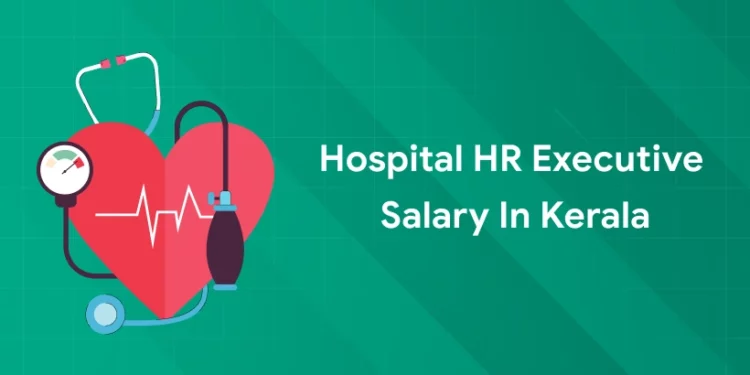Table of Contents
Key Takeaways:
- Hospital HR Executives in Kerala earn an average annual salary of around ₹437,900 in 2025, reflecting steady growth opportunities in this sector.
- Experience, education, and the type of hospital significantly influence salary and career progression.
- The role blends people management, compliance, recruitment, and employee wellness, requiring a diverse skill set.
- Private hospitals generally offer higher salaries but may demand more flexibility, while public hospitals provide stable pay and better work-life balance.
- Upskilling through certifications and specialized courses like Entri’s Hospital Administration program can accelerate career advancement.
Introduction: The Human Touch Behind Kerala’s Hospitals
No patient walks into a hospital and wonders who manages the hiring, training, or welfare of the staff caring for them. Yet, behind every seamless experience, there’s a Hospital HR Executive—an essential piece of the healthcare puzzle, especially in Kerala’s dynamic medical sector. These professionals combine empathy, organizational skill, and strategic thinking to ensure hospitals run efficiently and treat employees fairly.
Kerala’s healthcare industry has grown rapidly, attracting talented HR professionals who value meaningful work, diverse everyday challenges, and the opportunity to make a positive impact on lives. Competitive salaries, job security, and opportunities for advancement make hospital HR executive roles both attractive and rewarding for individuals with a people-centric inclination.
What Does a Hospital HR Executive Do?
1: What is the primary role of a hospital administrator?
Hospital HR Executives serve as the backbone of a hospital’s workforce management, performing a wide variety of duties vital to both staff well-being and organizational success.
-
Recruitment & Staffing:
-
Develop and circulate job postings on multiple platforms.
-
Screen applications, conduct interviews, and coordinate hiring of medical professionals, paramedical staff, and non-medical personnel.
-
Handle onboarding for newcomers, including orientation and accommodation arrangements where necessary.
-
-
Attendance & Payroll Management:
-
Monitor daily attendance using HRMS/software, prepare payroll, and manage salary calculations.
-
Execute statutory compliance (PF, ESI, professional tax) and process overtime or increments.
-
-
Employee Records & Documentation:
-
Maintain personal files, attendance registers, and issue experience or salary-related certificates.
-
Prepare ID cards and update HR systems regularly.
-
-
Policy Implementation & Grievance Handling:
-
Draft and enforce HR policies as per hospital standards and statutory laws.
-
Address employee grievances, escalate serious issues, and foster a positive work culture.
-
-
Learning, Development & Engagement:
-
Organize training workshops and staff development programs.
-
Promote employee engagement, recognition, and wellness initiatives to boost morale.
-
-
Daily Operations & Communication:
-
Serve as a point of contact for day-to-day queries, report joining/resignation stats to management, and communicate relevant updates.
-
Tip: In a hospital setting, HR care goes beyond routine admin—it’s about ensuring the work environment enables top-tier patient care and staff satisfaction.
Hospital Administration Course with Assured Career Growth
Hospital Administration Course by Entri App: Master essential healthcare management skills, gain certification, and secure top roles in leading hospitals
Join Now!Salary Overview: Hospital HR Executive in Kerala
Hospital HR executives command competitive compensation, reflecting the sector’s growth and the demand for skilled professionals.
-
Entry-level salaries start at roughly ₹239,000 per year.
-
The median annual salary is ₹437,900, meaning half of professionals earn above this figure.
-
Senior roles (10+ years’ experience) can see pay packages rise up to ₹698,200 per year.
-
Monthly pay ranges from ₹20,000 (junior, smaller hospital) to ₹58,000 (experienced, major hospital).
Factors Influencing Salary
A range of elements affect the earning potential of Hospital HR Executives in Kerala, making career advancement a dynamic process.
-
Work Experience:
-
Junior staff start on modest packages, but each year boosts bargaining power and compensation, with major jumps after 5, 10, and 15 years.
-
-
Education & Specialization:
-
Those with an MBA in HR, a Master’s degree, or specialized hospital administration qualifications are in higher demand and average much better salaries.
-
-
Type & Size of Hospital:
-
Large multispecialty hospitals, hospital chains, and those accredited by NABH/JCI usually pay better and provide more perks than small local clinics.
-
-
Certifications and Skills:
-
Certifications such as SHRM-CP, PHR, or hospital-specific HR diplomas add to credibility and salary prospects.
-
-
Geographical Factors:
-
Urban centers like Kochi, Thiruvananthapuram, and Ernakulam have more competitive packages than smaller towns due to higher demand and hospital density.
-
Tip: Upskilling and targeting large or accredited hospitals in metros can dramatically improve your salary curve.
Salary Table by Experience Level
| Experience Level | Average Annual Salary |
|---|---|
| 0-2 years | ₹271,300 |
| 2-5 years | ₹361,500 |
| 5-10 years | ₹471,700 |
| 10-15 years | ₹568,500 |
| 15-20 years | ₹623,200 |
| 20+ years | ₹656,800 |
Building a successful HR career in the hospital sector requires both proactive upskilling and strategic positioning.
-
Obtain Recognized Certifications:
-
Pursuing certifications like SHRM-CP, PHR, or postgraduate diplomas in Hospital Administration builds expertise and reputation.
-
-
Master HR Technology:
-
Learning HRMS software, data analytics, and payroll platforms (e.g., SAP, Zoho, Keka) increases operational efficiency and desirability as a candidate.
-
-
Expand Legal and Compliance Knowledge:
-
Understanding labor laws, employee benefits, and healthcare regulations is essential for higher responsibility roles.
-
-
Focus on Soft Skills:
-
Excellent communication, negotiation, and conflict-resolution ability set you apart for leadership positions.
-
-
Engage in Continuous Learning:
-
Attend seminars, workshops, and webinars, and actively network with Kerala’s hospital HR community.
-
-
Target Advanced Education:
-
An MBA or a Master’s in HR or Hospital Management opens doors to senior roles and higher pay brackets.
-
Tip: Consider combining a recognized hospital administration qualification (like Entri’s course) with workplace experience to fast-track career growth in Kerala’s hospital sector.
|
You Might Also Like |
|
| Hospital Administrator Salary In Kerala | |
Hospital Administration Course with Assured Career Growth
Hospital Administration Course by Entri App: Master essential healthcare management skills, gain certification, and secure top roles in leading hospitals
Join Now!Sector Split: Private vs. Public Hospital Roles
The hospital HR executive role can vary notably depending on whether you work in the private or public healthcare sector in Kerala, affecting salary, benefits, job security, and work culture.
Private Hospitals
-
Higher Salary Packages: Private hospitals, especially multispecialty and NABH-accredited ones, often offer higher salaries and performance-linked incentives to attract skilled HR professionals.
-
Dynamic Work Environment: These hospitals emphasize efficiency, employee engagement programs, and adoption of modern HR technologies such as HRMS and analytics tools.
-
Career Advancement: Rapid growth opportunities exist, driven by merit and certifications; leadership roles can be achieved faster with relevant upskilling.
-
Work Pressure & Expectations: Private sector roles may demand longer working hours, flexibility, and a results-oriented approach given the competitive market.
-
Employee Benefits: May include health insurance, bonuses, paid leave, and wellness initiatives, but benefits vary widely by hospital size and ownership.
Public Hospitals
-
Stable Employment: Government hospitals in Kerala offer job security with structured pay scales governed by state regulations.
-
Standardized Pay: Salaries may be lower compared to private counterparts but come with regular increments, pensions, and other government benefits.
-
Defined Work Hours: Public sector jobs usually have fixed working hours and mandated holidays, contributing to better work-life balance.
-
Limited Perks: Less focus on incentive schemes or advanced HR tech adoption; processes might be slower due to bureaucratic norms.
-
Career Progression: Promotions often follow seniority and service length, making it a steadier but potentially slower growth path.
Tip: Understanding this sector split can help HR aspirants choose a pathway aligned with their priorities—whether it’s rapid career growth with higher pay or stable government employment with good work-life balance.
Interview Process & Common Questions
Securing a Hospital HR Executive position in Kerala hospitals involves a structured interview process designed to assess your HR expertise, understanding of hospital operations, and soft skills necessary to handle the unique challenges of healthcare human resources.
Typical Interview Process
-
Resume Screening: Shortlisting candidates based on qualifications, experience, and relevance to hospital HR needs.
-
Telephonic Interview: Basic screening for communication skills, role understanding, and availability.
-
Technical Interview: Questions on HR principles, healthcare regulations, recruitment strategies, employee relations, and conflict resolution.
-
HR Interview: Assessment of interpersonal skills, ethical decision-making, and cultural fit within the hospital environment.
-
Final Round: May include a practical test or scenario-based questions concerning hospital HR challenges.
Common Interview Questions and How to Answer
-
Tell us about yourself and your experience in hospital HR.
Answer: Briefly summarize your career with focus on healthcare HR roles, highlighting relevant recruitment, compliance, and employee management experience. -
How would you address a sudden shortage of medical staff during peak demand?
Answer: Explain strategies like fast-track recruitment, temporary staffing, and long-term retention plans to manage workforce needs efficiently. -
What measures do you take to ensure compliance with healthcare labor laws?
Answer: Discuss your familiarity with Kerala labor regulations, periodic audits, training sessions, and policy reviews to maintain compliance. -
How do you handle conflicts among hospital staff?
Answer: Describe your approach to mediating disputes, encouraging open communication, and following up to ensure resolution and harmony. -
What motivates you to work in the healthcare HR sector?
Answer: Express passion for contributing indirectly to patient care by supporting hospital staff and enhancing workplace culture. -
Can you share an example of a challenging HR problem you solved?
Answer: Provide a specific scenario demonstrating problem-solving, negotiation, or policy implementation successfully.
Tip: Prepare personalized answers with examples from your experience, keeping a focus on hospital HR-specific scenarios to impress interviewers.
About Entri’s Hospital Administration Course
Entri’s Hospital Administration Course, designed for aspiring HR professionals, is tailored to Kerala’s dynamic healthcare landscape.
-
Comprehensive Curriculum:
-
Covers hospital HR operations, recruitment, compliance, employee wellness, leadership, and crisis management.
-
Offers training in digital tools, statutory processes (PF, ESI), and advanced HR analytics.
-
-
Industry-Relevant Faculty:
-
Delivered by experts with hands-on experience in Kerala’s hospital management sector.
-
-
Dedicated Career Support:
-
Includes resume building, job interview prep, and exposure to Kerala’s top recruiters.
-
-
Flexible Learning:
-
Suitable for working professionals, with self-paced lessons and live mentorship.
-
-
Pathway to Success:
-
Alumni regularly secure roles in top Kerala hospitals, leveraging their skills for rapid career advancement.
-
Conclusion: Ready for a Rewarding HR Career in Kerala’s Hospitals?
Being a hospital HR executive in Kerala offers the rare combination of meaningful work, job stability, and a competitive salary. Continuous learning is key—specialized qualifications and real-world experience open doors across top hospitals in Kerala. Entri’s Hospital Administration Course is designed to give aspiring HR professionals the head start they need, backed by practical knowledge and a network of industry leaders. For deeper career resources, check Entri’s topical blogs and take the next step toward a fulfilling career where you truly make a difference.
| Also Read | |
| How to Become a Hospital Administrator | |
| Top Skills Needed for a Successful Career in Hospital Administration | |
| Career Pathways in Hospital and Healthcare Administration |
Hospital Administration Course with Assured Career Growth
Hospital Administration Course by Entri App: Master essential healthcare management skills, gain certification, and secure top roles in leading hospitals
Join Now!Frequently Asked Questions
How does hospital size affect salary for HR Executives in Kerala?
Larger hospitals and well-known chains offer better salaries and comprehensive benefits.
Is there a difference in pay between government and private hospitals?
Private hospitals generally provide higher pay, while government jobs offer greater job security and fixed increments.
What skills are most in demand for Hospital HR Executives?
Expertise in talent acquisition, HR data analytics, labor law, and a patient-centric approach are highly valued.
How often do HR Executives receive a pay raise?
Average is about 8% annually, slightly above the national average.
Which certifications can help secure promotions in hospital HR roles?
MBAs, SHRM-CP, PHR, and hospital HR management diplomas boost promotion chances.















